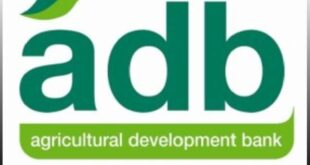At the end of December 2019, total mobile data subscriptions stood at about 30.4 million, which is 101 per cent penetration compared to the country’s population.
Mobile cellular voice subscriptions have for many years been more than the country’s population, but mobile data subscription had not topped the population until now.
Indeed, by the close of the period in question, mobile voice subscriptions stood at about 40.2 million, representing some 135.33 per cent penetration.
But now data subscription is also fast inching towards saturation as it crosses the 100 per cent mark in 2019.
This is contained in the National Communications Authority (NCA) Telecom Industry Report for December 2019 published February 10, 2020 on the NCA’s website.
Analysts, however, say the number of subscriptions does not necessarily represent the number of subscribers, as many people use more than one active SIMs, meaning there are more people yet to be connected.
Industry experts estimate that the actual number of mobile cellular subscribers is around 16 to 17 million.
Meanwhile, out of the total mobile data subscription figure, a little over 28 million are 2G/3G mobile data connections, being 92.76 per cent, while the remaining 2.4 million, representing 7.24 per cent are 4G connections.
As always, market leader, MTN tops the pack with whopping 20 million plus 2G/3G data subscriptions, representing 71.72 per cent market share. Indeed.
MTN is also the voice market leader with over 22.5 million subscriptions, representing 55.21 per cent market share.
But even though Vodafone is second in terms of voice market share, it fell back one step behind AirtelTigo on the data front.
Vodafone finished the year with a little over 9.1 million voice subscriptions, representing 22.33 voice per cent market share, out of which about 3.54 million were 2G/3G data subscribers, representing 12.64 per cent market share.
Meanwhile, AirtelTigo, which finished third on the voice market with 8.45 million plus subscriptions, being 20.69 per cent market shared, closed the year as the second largest 2G/3G mobile data telco with 4.1 million plus data subscribers, representing 14.68 per cent market share.
Again, as has always been the case, Glo trailed on both voice and data market shares, finishing the years with 269,153 2G/3G data customers, representing only 0.96%, while its voice subscriptions stood at 725,773, being 1.78% market share.
4G Subscriptions
Industry players have always demanded a separate report on just 4G market and report did not fall short of that.
On the 4G side of things, there were six players on the market – MTN, Vodafone, and the four Broadband Wireless Access (BWA) licensees – Surfline, Blu, Broadband Home (BBH) and Telesol.
Again, MTN stretched the pack with about 2.2 million 4G subscriptions out of a total of about 2.4 million. In effect, MTN finished the year with an overwhelming 91.23 per cent 4G market share.
But it was Vodafone that made a significant impression shooting straight to second place behind MTN, even though there were four 4G players on the market long before Vodafone entered the market.
Indeed, Vodafone finished the year with 161,892 4G subscriptions on its network, which is 6.79 per cent market share, way higher than the combined market share of the four others on the market before Vodafone.
The biggest BWA, Surfline recorded 43,735 subscriptions, representing 1.84 per cent; followed by Telesol with 2,104, being 0.09 per cent; then BBH with 1,058 subscribers, which is 0.04 per cent, and finally Blu Ghana finished with 225, representing 0.01 per cent market share.
Local content argument
The BWAs, which are all Ghanaian-owned companies, have always argued that there is need for government to have a strong local content policy in the telecom space, to ensure that wholly-owned or majority-owned Ghanaian companies, like the BWAs, got some protection from the big multinationals.
Indeed, currently all the telecom operators in Ghana are multinationals, so government deliberately issued licenses for 4G services to only local companies and gave them three years’ head start.
After three years, the BWA licenses were either dormant or heavily under-utilized, so the 4G space was opened and market leader, MTN jumped in 2016, amidst very heavy but failed protest by the BWAs.
Since the entrance of MTN, things seem to have gone from bad to worse for the BWAs, to the point that one of the licensees, Goldkey Telecoms had to sell its license to MTN, and even give the market leader a boosted advantage over other players in the market.
Some of the BWAs had then sought leave of the NCA to partner some telcos so they could deploy their superior 4G spectrum on the networks of the telcos, which already have wider coverage, but the NCA blocked those requests for a number of reasons.
The reasons given were that there was no regulatory frame for such partnerships between players holding different spectrum bands, and secondly, that the MTN-Goldkey deal was an acquisition and not a partnership.
So if any telco wanted to rollout 4G, they were required to either acquire a license directly from NCA or acquire a BWA for the purpose, rather than seeking partnership deals.
So the market structure remains as it is arguably because the local player (the BWAs) do not have money to meet their licensing requirement, and they are also not being allowed to partner the telcos, which also claim they don’t have money to acquire the relative expensive 4G spectrum directly from NCA.
Source: Adomonline.com
 Home Of Ghana News Ghana News, Entertainment And More
Home Of Ghana News Ghana News, Entertainment And More





